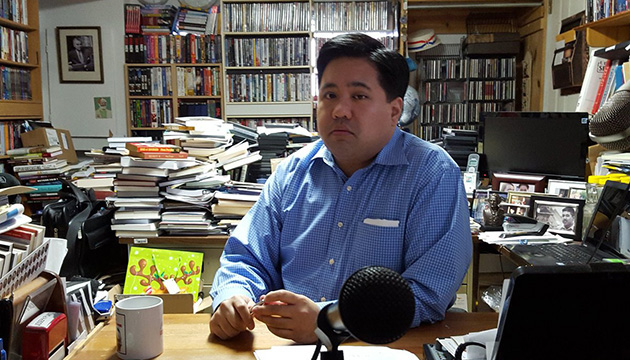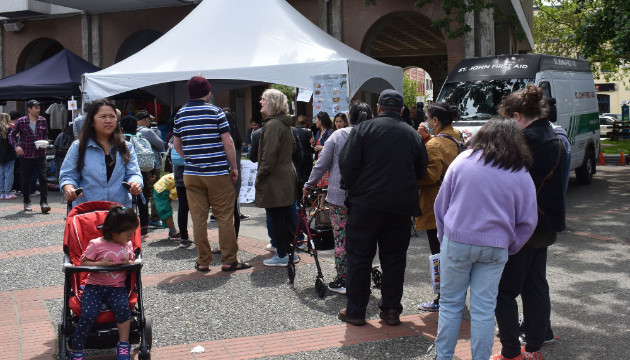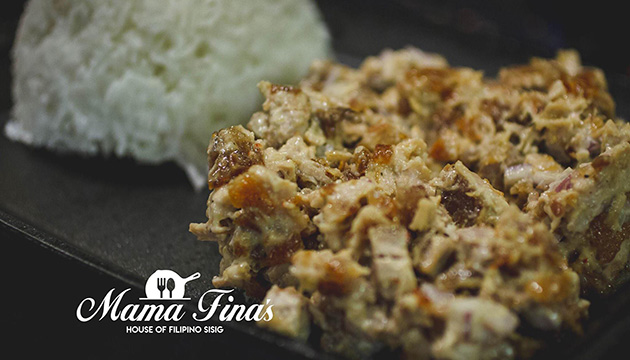Every year, May 3 is celebrated as World Press Freedom Day worldwide. It’s a day which celebrates the fundamental principles of press freedom, to evaluate press freedom around the world, to defend the media from attacks on their independence, and to pay tribute to journalists who gave their lives in the exercise of their profession.
It serves as an occasion to inform citizens of the world violations of press freedom – a reminder that in dozens of countries around the world, publications are still censored, fined, suspended and closed down, while journalists, editors and publishers are harassed, attacked, detained and even murdered. It is a date to encourage and develop initiatives in favour of press freedom, and to assess the state of press freedom worldwide.
For Canadian Filipinos, it is a day to consider how freedom of the press has gone to the dogs in the Philippines. The country was once known as having “the freest and liveliest press in Asia” even “rambunctious.” It used to function as a real watchdog of the government, was sensitive to national issues and critical of government mistakes and abuses. The post-war era to pre-martial law period (1945-1972) was called the golden age of Philippine journalism.
When Marcos declared Martial Law in the Philippines on September 23, 1972 to prolong his stay in Malacanang, press freedom started going downhill. And today with Duterte’s anti-drug wars and his Anti Terrorism Law which makes it a crime to criticize the government, press freedom in the Philippines and confidence in the government are about to hit rock bottom.
The press during the Marcos martial law period was highly controlled. Almost overnight, the print media changed its traditional adversary relationship with the government to that of “cooperation.” Many journalists learned to practice brinkmanship and even self-censorship in order to survive or avoid media restrictions and direct confrontation with the regime. This situation has become worse in the Duterte regime.
Freedom of speech and freedom of the press are enshrined in the 1987 constitution of the Philippines. The Office of the President is responsible for managing the government’s policy toward the press. Although independent observers credit the government with respecting freedom of the press in general, the government has been criticized lately for failing to investigate thoroughly the summary killings of journalists and for subjecting them to harassment and surveillance.
Violence against Filipino journalists
The Philippines ranked 136th out of 180 nations on the “Reporters Without Borders 2020 World Press Freedom Index” which evaluates press freedom in 180 countries worldwide. Number 1 is the freest and Number 180 is the country with the most repressed freedom of the press such as the type of repression represented by Duterte’s treatment of journalists.
Duterte has called journalists "sons of bitches" who are "not exempt from assassination." In September 2020, his government shut down ABS-CBN, the Philippines' biggest broadcasting network which, like Maria Ressa and Rappler, had the guts to criticize the Duterte administration particularly its “drug war” which killed without due process thousands of poor victims who were merely suspected as drug dealers.
Since Martial law in 1972, the continuing murders of journalists in the provinces and harassment of journalists in cities in the form of libel suits and death threats have increased in the Philippines. Between 1986 and 2005, 52 journalists have been murdered all over the country. In 2019 four journalists were murdered, making the Philippines the “deadliest country” for journalists in Asia that year.
Under Duterte’s regime, many journalists have been cowed into silence or labeled as anti government and charged with libel, and with the advent of social media – cyber libel. Government critics are harassed by Duterte’s cyber trolls who used social media to ruin their reputation with manufactured salacious gossip. The practice of journalism as legitimate, hard-hitting and investigative is almost gone in the Philippines today thus allowing unscrupulous government officials to commit unbridled abuse and corruption.
Why Freedom of the Press is Important
Press freedom plays a vital role in informing citizens about public affairs and monitoring the actions of government at all levels. Freedom of the press or freedom of the media is the principle that communication and expression through various media, including printed and electronic media, especially published materials, should be considered a right to be exercised freely by everyone.
“Journalism without Fear or Favour” is the theme of this year’s celebration of World Press Freedom Day. WPF Day seeks to promote the idea that we need to stand up for a free, safe and independent media and protect journalism from new and existing forms of unwanted control, pressure and influence.
According to UNESCO, with more than 1,100 journalists killed in the world from 2006 to 2019, and only one case out of 10 judicially solved, the level of impunity for crimes against journalists remains terribly high. This imposes a climate of fear in many parts of the world, including the Philippines, which is ultimately detrimental to the free circulation of ideas and opinions by both the media and citizens at large.
Filipino journalists struggled a lot during the dictatorship of Ferdinand Marcos and now under the authoritarian rule of Duterte. Some have paid with their lives and many others have risked their personal safety to make sure that the press stayed free to criticize government officials as needed and make them accountable.
Filipino journalists, true to their tradition of political muckraking, corruption exposés, and investigative reporting, have often put their lives on the line, serving the Philippine people and democratic values in the process. It’s important that their efforts are supported by the people – including by the Philippine Congress.
Citizens, including Filipinos abroad must share the stake to hold the powerful accountable. Since all internet users in the Philippines use Facebook, Canadian Filipinos should use FB to speak up against media persecution in the Philippines. They should lobby the Canadian government to criticize the extrajudicial killings of thousands of suspected drug dealers in Duterte’s drug war to eliminate drugs from the country.
Filipinos with dual citizenship, who are eligible to vote in the Philippines, should use this privilege to get rid of corrupt government officials in the May 2022 election and defeat corrupt dynastic candidates running to keep their families in power for another generation. They could also write and lobby their Canadian MPs and MLAs to advocate for press freedom in the Philippines and criticize Duterte’s Anti Terrorism Law just as Canada had criticized Hong Kong’s controversial Security Law which was passed by China to effectively curtail protests and freedom of speech in Hong Kong.
Canadian Filipinos can stand up for press freedom in the Philippines if they wish. But it’s unfortunate that many of them seem to have become complacent with their secure Canadian life and have become afraid to do anything to put their comfortable life at risk. Sadly, for some, patriotism or love of “native land” seems to have been left behind when they immigrated to Canada. However, if there is still a spark of that “love for native land” in some Filipino hearts, they should lobby the Canadian government to denounce Duterte’s Anti Terrorism Law just as Canada has denounced China’s National Security Law in Hong Kong. Is this too much to ask? Is patriotism really dead in Canadian Filipino hearts?
By Eleanor R. Laquian
For the CFNet Editorial Board
Contact us at










